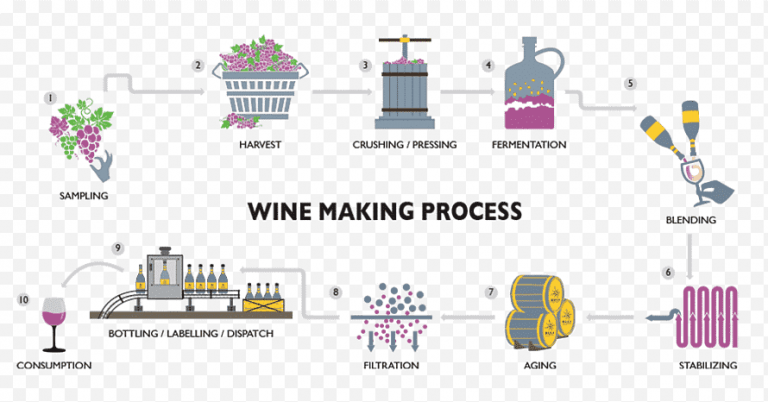In wine making what is the must the juice drawn from the grapes but not yet fermented into wine

In Wine Making, What is the Must?
In the fascinating world of wine making, “must” is a term that holds great significance. This term refers to the juice that is extracted from grapes but has not yet undergone fermentation, resulting in the creation of wine. Let’s delve deeper into understanding the concept of must and its vital role in winemaking.
What is Must in Wine Making?
The process of wine production begins with the must, which is essentially the juice obtained from crushing and pressing grapes. This juice contains everything present in the grapes, including sugars, acids, tannins, and other necessary components essential for wine production. It is the foundation upon which wine is built.
During the wine-making process, different factors affect the characteristics of the must. These include factors such as grape variety, region, climate, ripeness of grapes, and the winemaker’s preferences. Each of these elements contributes to the overall flavor, aroma, and quality of the final wine produced.
Must Extraction and Quality
To extract the must, grapes are carefully picked and sorted to ensure only the best fruit is used. Once selected, the grapes are gently crushed to release their juice. The juice is then separated from unwanted solid materials such as seeds, skins, and stems through a process known as pressing.
The quality of the must heavily influences the ultimate quality of the wine. For instance, the sugar content in the must determines the alcohol level that the wine will achieve during fermentation. Winemakers often measure this sugar content in terms of Brix, which indicates the percentage of sugar by weight in the grape juice.
Image: Grapes are carefully selected and prepared for must extraction in wine production.
Fermentation and Must Transformation
After the must is extracted, it is ready for fermentation—the magical process that transforms the juice into wine. Fermentation occurs when yeast, a naturally occurring microorganism, consumes the sugars present in the must and converts them into alcohol, carbon dioxide, and heat.
During fermentation, the must comes alive with activity as yeast cells break down the sugars. This crucial step enables the development of the characteristic flavors, aromas, and complexity associated with different types of wine. Winemakers often closely monitor the fermentation process to ensure optimal conditions for the yeast cells.
Image: Fermentation is a crucial step where the must transforms into wine.
Influence of Must on Wine Characteristics
The composition of the must significantly impacts the final product’s flavor profile, structure, and texture. The sugar levels, acidity, and tannins present in the must can contribute to various wine styles, ranging from dry to sweet, light-bodied to full-bodied, and crisp to smooth.
Moreover, the choice of grape variety and its corresponding must characteristics play a fundamental role in the wine’s taste. For example, grapes known for their high acidity, such as Sauvignon Blanc, produce wines with a vibrant and refreshing character, whereas low-acidity grapes can result in more mellow and rounded wines.
Conclusion
Understanding the role of must in winemaking provides us with valuable insights into the complex and captivating world of wine production. From the initial extraction of the juice from grapes to its transformation into wine, the must forms the foundation upon which the art and science of winemaking are built.
Through careful selection, extraction, and fermentation, winemakers have the opportunity to craft exquisite wines with unique flavor profiles and characteristics. Thus, the must serves as a key ingredient in the creation of wines that delight and captivate wine enthusiasts all over the world.
Sources:
Tags
Share
Related Posts
Quick Links
Legal Stuff



